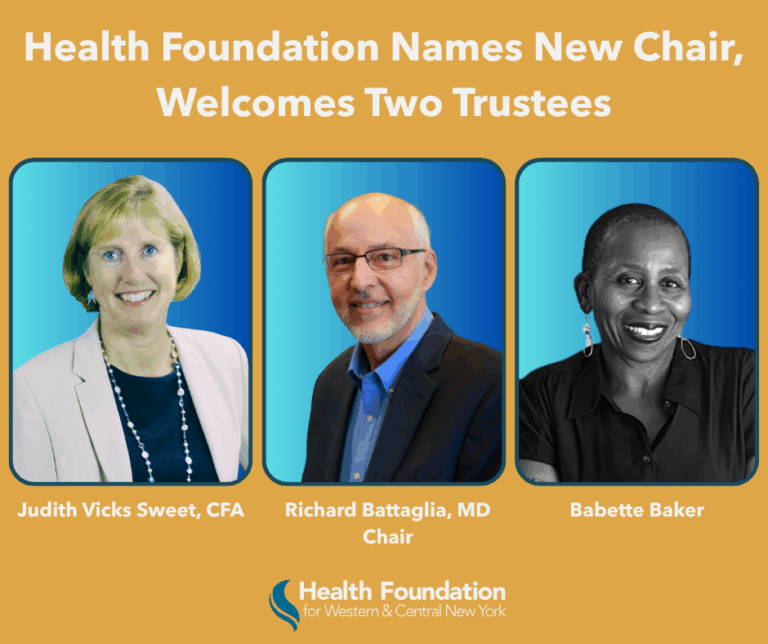An edited version of this piece was originally published in The Buffalo News on April 12, 2023
By Darcy Dreyer, Director, Maternal Infant Health, March of Dimes NY/NJ and Nora OBrien-Suric, PhD, President, Health Foundation for Western & Central New York
On March 16, 2023, the U.S. Centers for Disease Control and Prevention released a report on maternal mortality rates for 2018 through 2021. The data was shocking: the number of people dying from pregnancy-related issues across the country is still rising dramatically. The data shows 1,205 deaths were reported in 2021, reflecting an increase of nearly 89 percent in the maternal mortality rate since 2018. The rate of maternal deaths among Hispanic women more than doubled between 2019 and 2021, and rates for Black women nearly doubled in that time.
While these numbers are horrifying, they reflect a long-term problem that began many years before the COVID-19 pandemic. Simply put, it continues to be more dangerous to be pregnant in the U.S., where we have a mortality rate that exceeds almost every other developed, high-income country, especially if you are a Black or Hispanic person. These inequities are evident close to home; New York State most recently ranked 23rd in the country for maternal health. In New York, the preterm birth rate among Black women is 58 percent higher than the rate among all other women, and the maternal mortality rate for Black women in New York is over four times that of white women.
In addition to the increased health risks in pregnancy posed by the COVID-19 virus, several other factors drive these outcomes. Access to high-quality health care; management of chronic health conditions; implicit bias by doctors and other health care workers; and access to support services like mental health resources and birth doulas all play a role.
There is extensive data showing that having the support of a birth doula can lead to better outcomes. Doulas provide personalized care and guidance, advocate for their client during labor, and help ensure the health of mom and baby postpartum. According to the New York Coalition for Doula Access, patients with doulas are 22 percent less likely to have a preterm birth, 53 percent less likely to need a C-section, and 58 percent less likely to experience postpartum depression.
Until recently, doula services were not reimbursable by Medicaid, and rarely covered by private health insurance—meaning they have been available only to people with the financial means to pay for them. That’s why the Health Foundation for Western & Central New York and March of Dimes NY have worked together to bring doula programs to the communities that need them most. This included supporting the New York State Doula Pilot Project’s launch in Erie County in 2018 that aimed to expand the state’s Medicaid program to cover the cost of doula services. As of September 2022, roughly 19 percent of all Medicaid births in Erie County have received doula support. The Health Foundation also supports the Doula Partnership of Cayuga, Cortland, and Madison Counties to help expand doula access in central New York.
We were pleased to see New York State Senator Samra Brouk recently introduce legislation that would make doulas more accessible for low-income women by increasing the Medicaid reimbursement rate for these services. We were also pleased at the inclusion of equitable reimbursement for doulas in Governor Hochul’s FY 2024 executive budget. We are encouraged by this progress. Doulas should be reimbursed at a rate that allows them to earn a living wage and recognizes the incredible life-saving care they provide.
Of course, doula services alone will not fix the abysmal maternal health outcomes we experience in the U.S., but resourcing, supporting, and endorsing these services at the level that is warranted by this infant and maternal health crisis is an important step.
We encourage our elected officials to take action that shows they value the lives of every pregnant person by ensuring they can receive the care and services they need and deserve.



